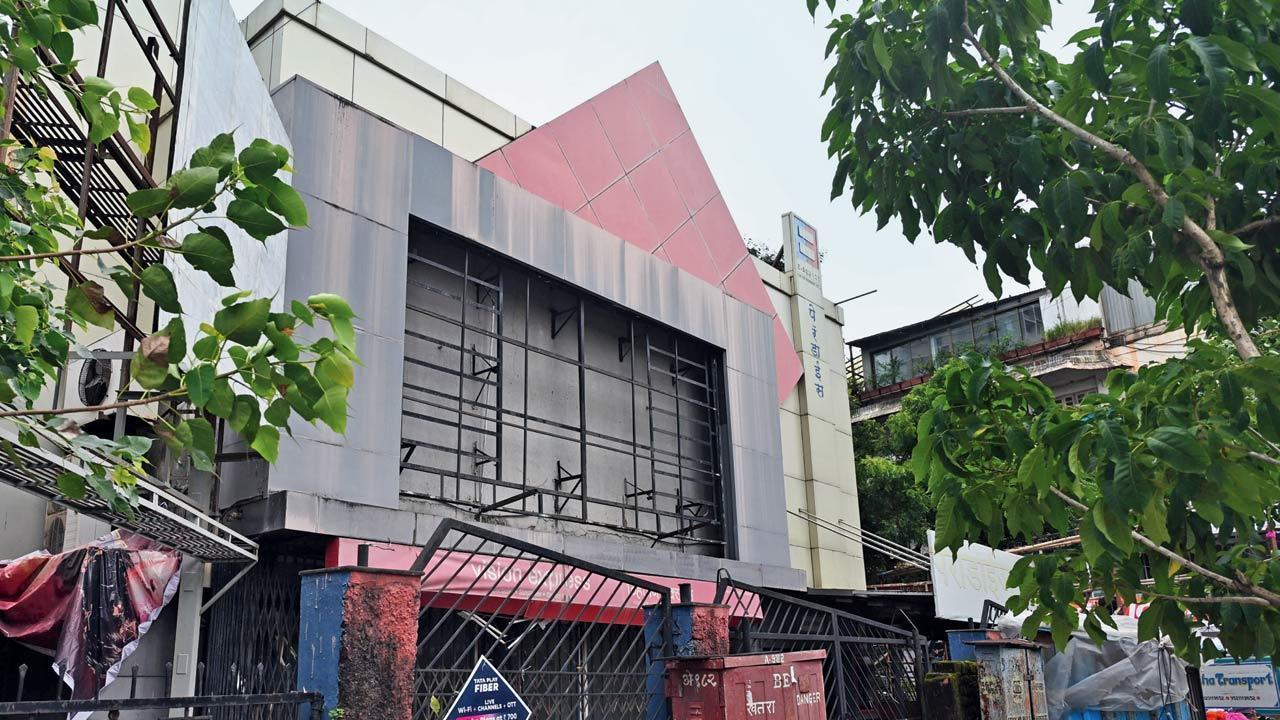
Paradise Cinema in Mumbai’s Mahim has recently ceased operations, leaving many residents and cinema lovers pondering its fate. Traffic jams, Sitladevi Mandir, and the historic cinema hall were key fixtures on Lady Jamshedji Road. The cinema, which has been a stalwart of the local landscape since its establishment in 1939-1940, now presents a strikingly different scene. In the last three weeks, the once lively theatre has seen its gates locked, posters removed, and an eerie calm replace the bustling crowds of movie-goers.
Various speculations have emerged about the future of this iconic property, owned by the Dubash family. There are whispers that the theatre might be transformed into a modern multiplex, a move that has both excited and concerned cinephiles and heritage proponents. As things stand, the family’s decision on the theatre’s next chapter remains uncertain.
When visited on a recent Monday, the cinema was eerily quiet. A security guard at the location informed our team that “Fighter,” screened in January, was the last film to see substantial attendance. According to him, although films stopped being shown by June, it was early August when all operations completely halted. “We stopped playing films before Munjya and Kalki: 2898 AD were released,” the guard confirmed.
Niloufer Dubash provided further insights, confirming the temporary closure of the cinema. “We have closed because there was no good stock of movies,” she said. Rumours about the property potentially being turned into a multiplex or a parking lot have been circulating, but Dubash dismissed these as mere speculations. “We are contemplating a change, but currently, we are uncertain about what that change will be. At this point, everything remains a rumour until we finalize and announce our plans,” she added.
The closure of Paradise Cinema marks a significant shift for a theatre that has been a pillar of Mumbai’s cultural landscape for over eight decades. Built by Sorabji Bhathena, the theatre was later acquired by the Dubash brothers, Shavaksha and Bapuji.
. Their passion for cinema and business acumen transformed Paradise Cinema into a landmark destination. The theatre even saw a temporary closure in the early 2000s but was revitalized and reopened during the release of “Golmaal Returns” in 2008. This revival period also saw a partnership with E-Square Cinemas, rebranding the venue as Paradise E-Square.
Since the 1940s, Paradise Cinema has served as more than just a venue for film viewings; it has been a communal space, drawing generations of families and friends together. It stands as a testament to Mumbai’s rich cinematic history and the glamour of the golden age of Bollywood. Its ornate architecture and vintage charm have made it a favourite among both locals and tourists.
Despite its storied past, the cinema has not been impervious to the evolving dynamics of the film exhibition industry. The rise of multiplexes and digital streaming services has redefined how audiences consume films, posing challenges to single-screen theatres like Paradise. These developments have left many such theatres grappling with declining footfall and changing audience expectations.
In recent years, numerous heritage theatres across Mumbai have faced similar fates, either closing down or being repurposed. The potential transformation of Paradise Cinema into a multiplex indicates an attempt to conform to modern consumer demands. Such a move, however, raises questions about the preservation of cultural history and architectural heritage.
As residents and stakeholders await an official decision from the Dubash family, a sense of nostalgia mingled with uncertainty hangs in the air. The cinema’s temporary closure is a poignant moment for those who have cherished its presence in the city’s cultural fabric. For some, it is a symbol of the inevitable changes that come with time and technological advancement. For others, particularly those invested in heritage preservation, it is a call to action to maintain a dialogue about the importance of conserving iconic historical sites.
In the grand narrative of Mumbai, where change is the only constant, the fate of Paradise Cinema will undeniably add another chapter to the city’s ever-evolving story. While the theatre’s screens remain dark for now, the legacy of Paradise Cinema continues to flicker in the collective memory of all those who have sat in its hallowed halls, captivated by the magic of the silver screen.












